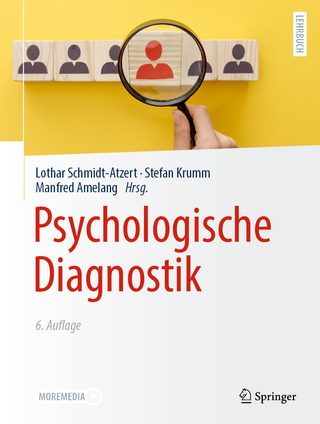
The Psychology of Criminal Conduct
Routledge (Verlag)
978-1-138-93577-8 (ISBN)
- Titel erscheint in neuer Auflage
- Artikel merken
In this edition, the first since Andrews' death, Bonta carefully maintains the book's original contributions while presenting these core concepts succinctly, clearly, and elegantly. Appropriate for advanced undergraduates and graduate students as well as for scholars, researchers, and practitioners, The Psychology of Criminal Conduct, Sixth Edition, further extends and refines the authors' body of work.
James Bonta served as Director of Corrections Research at Public Safety Canada from 1990 until 2015. He received his Ph.D. in Clinical Psychology from the University of Ottawa in 1979. Bonta was a psychologist, and later Chief Psychologist, at the Ottawa-Carleton Detention Centre, a maximum-security remand facility for adults and young offenders. Throughout his career, Bonta has held various academic appointments and professional posts and was a member of the Editorial Advisory Boards for the Canadian Journal of Criminology and Criminal Justice and Behavior. He is a Fellow of the Canadian Psychological Association, a recipient of the Association’s Criminal Justice Section’s Career Contribution Award for 2009, the Queen Elizabeth II Diamond Jubilee Medal, 2012, the Maud Booth Correctional Services Award, 2015, and the 2015 Community Corrections Award from the International Corrections and Prisons Association. The late D.A. Andrews was a noted criminologist affiliated with Carleton University throughout his academic career. His work on the psychology of criminal conduct produced what became known as the "theory of correctional intervention," which set the standard for successful intervention practices throughout the field of corrections worldwide. He was a founding member of Carleton’s Criminology and Criminal Justice Program and a Fellow of the Canadian Psychological Association. He received numerous awards for his work in the criminal justice field, including those from the American Probation and Parole Association, Correctional Service Canada, the International Community Corrections Association, and the American Society of Criminology. After his retirement, he remained active in the criminal justice field as a Professor Emeritus and Distinguished Research Professor.
Preface to the Sixth Edition
Part 1: The Theoretical Context and Knowledge Base to the Psychology of Criminal Conduct
Chapter 1 An Overview of the Psychology of Criminal Conduct
Chapter 2 The Empirical Basis to the Psychology of Criminal Conduct
Chapter 3 From Criminology Theories to a Psychological Perspective of Criminal Conduct
Part 2: The Major Risk/Need Factors of Criminal Conduct
Chapter 4 The Biological Basis of Criminal Behavior
Chapter 5 Antisocial Personality Pattern
Chapter 6 The Role of Procriminal Associates and Attitudes in Criminal Conduct
Chapter 7 The Person in Social Context: Family, Marital, School, Work, Leisure/Recreation, and Neighborhood
Chapter 8 Substance Abuse
Part 3: Applications
Chapter 9 The Risk-Need-Responsivity Model of Offender Assessment and Treatment
Chapter 10 Prediction of Criminal Behavior and Classification of Offenders
Chapter 11 Offender Rehabilitation
Chapter 12 Creating and Maintaining RNR Adherence: A Real World Challenge
Chapter 13 The Failed Experiment: Getting Tough on Crime
Chapter 14 Criminal Subtypes: Intimate Partner Violence, the Mentally Disordered, and Sex Offenders
Part 4: Summary and Conclusions
Chapter 15 A General Personality and Cognitive Social Learning Perspective of Criminal Conduct: Summary and Conclusions
| Erscheinungsdatum | 25.05.2016 |
|---|---|
| Zusatzinfo | 48 Tables, color; 26 Line drawings, color; 26 Illustrations, color |
| Verlagsort | London |
| Sprache | englisch |
| Maße | 191 x 235 mm |
| Gewicht | 940 g |
| Themenwelt | Geisteswissenschaften ► Psychologie |
| ISBN-10 | 1-138-93577-8 / 1138935778 |
| ISBN-13 | 978-1-138-93577-8 / 9781138935778 |
| Zustand | Neuware |
| Informationen gemäß Produktsicherheitsverordnung (GPSR) | |
| Haben Sie eine Frage zum Produkt? |
aus dem Bereich



